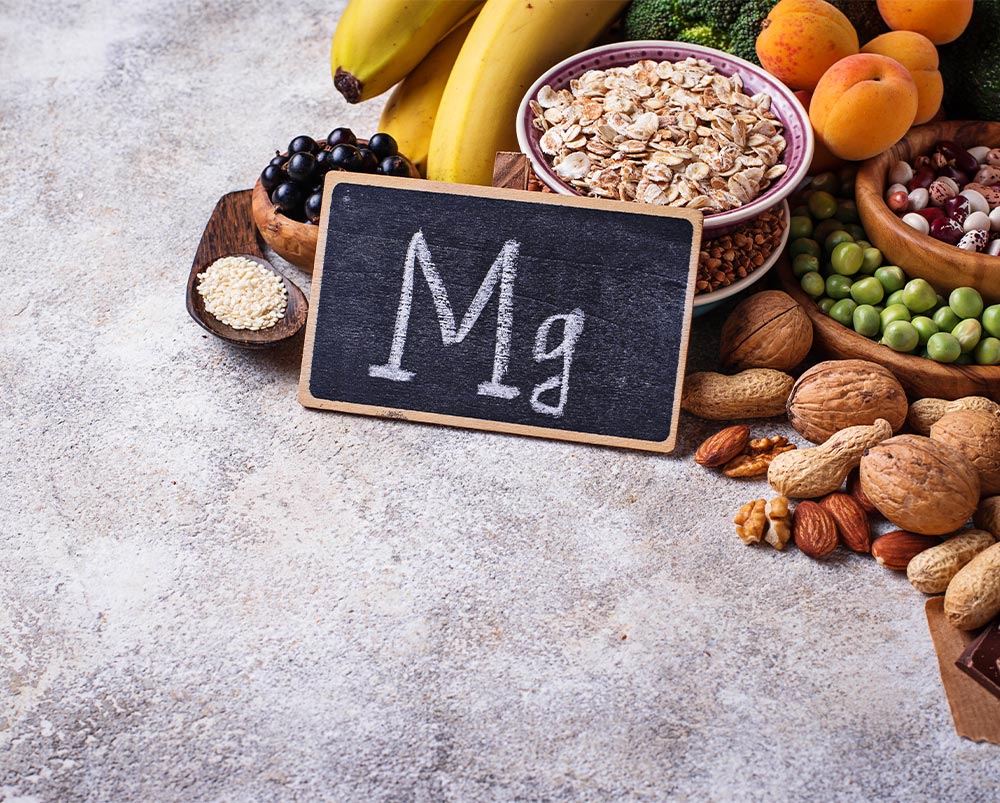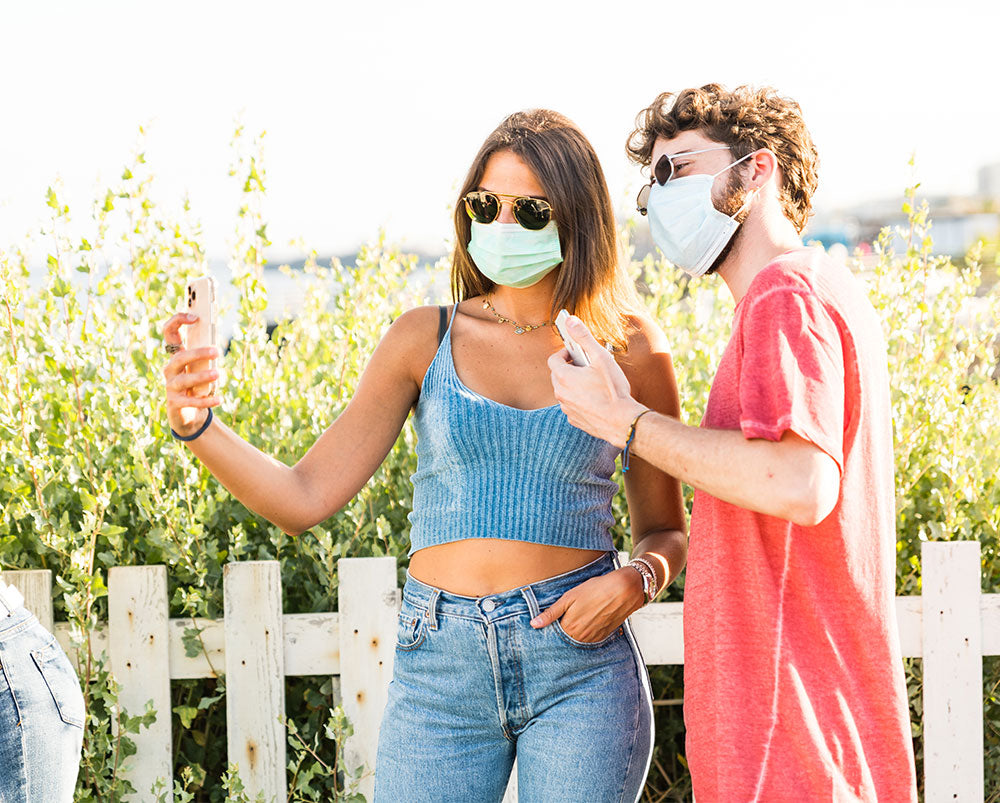Are you tired of dealing with the aftermath of sunburn and the damage it leaves behind? Well, we have some good news for you! In this blog post, we will explore the power of supplements in reversing sunburn damage and restoring your skin's health. From understanding the effects of sunburn to identifying its signs and dangers, we'll cover it all. But what makes these supplements so effective? We will dive into the world of Glutathione, NMN, Berberine, and Lion's Mane to discover their unique benefits for sunburn repair. And don't worry, we'll also guide you on how to incorporate these supplements into your routine safely. Say goodbye to sunburn damage and hello to healthier, rejuvenated skin!
Understanding Sunburn and its Effects
Sunburn is a common skin condition caused by overexposure to UV rays, specifically UVA and UVB rays. It can lead to redness, swelling, pain in the affected area and peeling skin. Sunburn not only damages the outer layer of the skin but also affects the deeper layers, increasing the risk of skin cancer due to UV exposure. Supplements play a crucial role in reversing sunburn damage by providing essential nutrients that promote skin repair and protection. Additionally, UV rays have different wavelengths, and some can penetrate deeper into the skin than others, making it important to use sunscreen lotion with a high sun protection factor (SPF) to block harmful rays. Other tips for preventing and treating sunburn include wearing protective clothing and staying hydrated.
Identifying the Signs of Sunburn
Identifying the signs of sunburn, including symptoms of sunburn such as erythema, is crucial in preventing further damage and promoting healing. Common symptoms include redness, pain, swelling, and blistering. Severe sunburn may also cause fever, chills, headache, and nausea. Peeling and itchingskin are indications of skin damage from sunburn. It's important to note that sunburn damages skin cells and increases the risk of skin cancer. By recognizing these signs early, you can take protective measures such as applying sunscreen, wearing protective clothing, and seeking shade to minimize the risk of sunburn.

Dangers of Prolonged Sun Exposure to the Skin
Prolonged sun exposure especially at high altitudes can have detrimental effects on the skin, including sunburn, premature aging, and an increased risk of skin cancer. The powerful ultraviolet rays from the sun, also known as UV light, can penetrate the skin, causing DNA damage that can lead to long-term consequences. In addition, sunburn damages the skin's protective barrier, making it more vulnerable to dehydration and infection. Continuous exposure to the sun can result in the development of dark spots, wrinkles, and sagging skin.
The Power of Glutathione
Glutathione, a powerful antioxidant, possesses the ability to reverse sunburn damage by reducing inflammation and repairing damaged skin cells. By taking glutathione supplements, you can improve the appearance of sun-damaged skin, diminishing redness and pigmentation. Additionally, glutathione supports overall skin health and helps prevent future sunburn damage. Harnessing the power of glutathione and vitamin D is a proactive step towards reversing sunburn damage and promoting healthy, radiant skin.
Can Glutathione Reverse Sunburn Damage?
Glutathione, a powerful antioxidant, has been shown to have potential benefits for skin health. One of its key roles is reducing oxidative stress caused by factors like sunburn and environmental damage. By neutralizing harmful free radicals, glutathione can help protect skin cells from damage and promote a healthier complexion. Additionally, it may also have anti-inflammatory properties that can further support skin healing and reduce redness or inflammation associated with sunburns. While more research is needed to fully understand the extent of glutathione's effects on the skin, incorporating this antioxidant into your skincare routine may offer some potential benefits.
The Efficacy of NMN
When it comes to reversing sunburn damage, NMN (Nicotinamide Mononucleotide) is a potential game-changer. Studies have shown that this supplement can repair DNA damage caused by UV radiation, reduce inflammation and redness associated with sunburn, and improve skin elasticity and texture. But NMN doesn't stop there – when combined with other antioxidants, its effectiveness in reversing sunburn damage is further enhanced. By harnessing the power of NMN, you can give your skin the support it needs to bounce back from sunburn and restore its health and vitality.

What Makes NMN a Good Choice for Sunburn Repair?
NMN, or Nicotinamide Mononucleotide, is a powerful molecule for sunburn repair. It helps repair DNA damage, promotes cellular energy production, and supports natural healing processes. By boosting NAD+ levels, NMN enhances skin repair and reduces inflammation. Research suggests it can reverse sunburn damage and improve overall skin health.
Berberine and Skin Health
Research indicates that berberine, a natural supplement, may have multiple benefits for sunburned skin and dermatology. It has been found to reduce inflammation and oxidative stress, which are major contributors to sunburn damage and discomfort. Additionally, berberine's antimicrobial properties can help prevent or treat skin infections that may occur as a result of sunburn. Studies also suggest that berberine promotes wound healing and collagen production, aiding in the repair of sun-damaged skin.
How does Berberine Contribute to Skin Repair?
Berberine plays a vital role in skin repair by reducing redness and irritation caused by sunburn. It also helps even out skin tone, promotes collagen synthesis, and protects against UV-induced oxidative stress. Berberine is a powerful ingredient for repairing sun-damaged skin and can also be used in the treatment of types of skin cancer.

Lion's Mane: A Unique Supplement for Skin Health
Lion's Mane, a medicinal mushroom with antioxidant and anti-inflammatory properties, has been used in traditional Chinese medicine for centuries. Recent studies reveal that Lion's Mane can reduce sunburn damage and promote skin healing. Its hericenones and erinacines stimulate the production of nerve growth factor (NGF), crucial for maintaining and repairing skin cells. Lion's Mane also contains immune-boosting beta-glucans, protecting the skin from further damage. Beyond skin benefits, Lion's Mane improves cognitive function, reduces anxiety and depression, and supports overall well-being.
What are the Benefits of Lion's Mane for Sunburnt Skin?
Lion's Mane, a medicinal mushroom known for its anti-inflammatory properties, offers numerous benefits for premature skin. It helps reduce inflammation and redness, promotes healing and regeneration, soothes itching, and improves overall skin health.
How to Incorporate These Supplements into Your Routine
To effectively incorporate these supplements into your routine, it is essential to understand their benefits and recommended dosages. Take the supplements as directed, either with meals or as advised by a healthcare professional. Consistency is key, so make sure to take them regularly to see noticeable results. Monitor your skin for improvements and adjust your routine if needed. By following these steps, you can maximize the benefits of these supplements in reversing sunburn damage and promoting overall skin health.

Dosage and Safety Considerations
When using supplements, it is essential to follow the recommended dosage instructions provided on the packaging. Additionally, it is important to consider any potential interactions or contraindications with other medications or health conditions. To minimize the risk of adverse effects, it is advised to start with a low dosage, gradually increasing if necessary, while closely monitoring for any side effects. However, it's crucial to remember that supplements should not replace a balanced diet and healthy lifestyle.
UV Rays, SPF and Supplements
In conclusion, it is essential to understand that reversing sunburn damage and sun damage in general requires a holistic approach. While supplements can play a significant role in promoting skin health and repair, they should be used in combination with other sun protection measures, such as wearing sunscreen, avoiding excessive sun exposure, and wearing sun-protective clothing. Glutathione, NMN, Berberine, and Lion's Mane are all promising supplements that have shown potential in repairing sunburn damage and promoting overall skin health.
Frequently Asked Questions (FAQ)
How do you heal a sunburn fast?
To heal a sunburn fast, soothe and hydrate the skin with aloe vera gel. Stay hydrated by drinking plenty of water to promote skin healing. Protect the affected area from further sun exposure with loose clothing or high-SPF sunscreen.
What are the three stages of sunburn?
The three stages of sunburn include first-degree, second-degree, and third-degree burns. In the first stage, the skin becomes red and irritated with mild pain and peeling. The second stage is characterized by blisters, more severe pain, and an increased risk of infection. The third stage is the most severe, with deep tissue damage, extensive blistering, and potential scarring.

Do sunburns turn into a tan?
Sunburns do not turn into a tan. Sunburn is a sign of skin damage caused by excessive UV radiation. After a sunburn, the skin may peel as it tries to heal itself. To achieve a tan, gradually build up sun exposure while using sunscreen.
How long does it take a sunburn to go away?
The duration for a sunburn to heal can vary based on its severity. Mild sunburns typically resolve within a few days to a week, while moderate ones may take up to two weeks. Severe sunburns, however, may require several weeks or even months to fully heal.
Are there long-term effects of sunburn?
Repeated sunburns can have lasting consequences on the skin, including freckles, an increased risk of different type of skin cancer like melanoma, premature aging, wrinkles, and dark spots. Protecting your skin from the sun and promptly treating sunburns can help minimize long-term damage.
Who's at risk of sunburn?
People with fair white skin type, light hair, and blue or green eyes are more susceptible to sunburn. Additionally, anyone who spends a lot of time outdoors without proper protection can be at risk. Certain medications or medical conditions may also increase the likelihood of sunburn.
Is it possible to get sunburn on a cloudy day?
Yes, it is possible to get sunburned on a cloudy day. Clouds do not completely block harmful ultraviolet radiation rays from the sun, which can still penetrate through and cause sunburn. It is important to wear sunscreen and take necessary precautions even on cloudy days.
How does a sunburn lead to skin cancer?
Sunburn damages the DNA in skin cells, leading to mutations and the potential development of cancer. UV radiation from the sun can disrupt the skin's natural defenses, increasing vulnerability to cancerous growth. Repeated or prolonged sunburns escalate the risk of skin cancer. Protecting your skin from harmful rays reduces the probability of both sunburn and skin cancer.

How can I reduce my risk of sunburn?
To reduce your risk of sunburn, make sure to apply sunscreen with a high SPF before going out in the sun. Seek shade or wear protective clothing like hats and sunglasses. Avoid direct sunlight during peak hours and stay hydrated to keep your skin healthy and less prone to sunburn.
Should I wear sunscreen while outside during the summer?
Yes, it is highly recommended to wear sunscreen while spending time outdoors in the summer. Sunscreen protects your skin from harmful UV rays that can cause sunburn and other damage. Choose a broad-spectrum sunscreen with an SPF of 30 or higher, and don't forget to reapply every two hours or more frequently if sweating or swimming.
What are some of the symptoms of sun poisoning, and what should I do if they occur?
Symptoms of sun poisoning include severe sunburn, blistering, fever, chills, headache, dizziness, nausea, and dehydration. If you experience these symptoms, seek shade immediately and cool your skin with cold compresses or a cold shower. Drink plenty of water to stay hydrated and take over-the-counter pain relievers if necessary. Seek medical attention if symptoms worsen or persist.
What are the benefits of drinking ice water for sunburn?
Drinking ice water can provide relief by soothing the burning sensation of sunburn. It can also reduce inflammation, constrict blood vessels to lessen redness and swelling, and help replenish fluids to stay hydrated.
Why is your skin red after a sunburn?
After a sunburn, the redness you see is the result of inflammation in the skin. When UV rays damage DNA in skin cells, it triggers an immune response that causes blood vessels to dilate, leading to redness. As the skin heals and inflammation subsides, the redness will fade.
How does applying aloe vera gel help heal a sunburn?
Applying aloe vera gel to sunburned skin provides immediate relief with its soothing and cooling properties. It forms a protective barrier, retains moisture, reduces inflammation, and promotes healing.
References:
Ultraviolet radiation and melanoma
How many melanomas might be prevented if more people applied sunscreen regularly?
Does chronic sunscreen use reduce vitamin D production to insufficient levels?
Discovering the link between nutrition and skin aging
Indoor tanning-related injuries treated in a national sample of US hospital emergency departments





Leave a comment (all fields required)